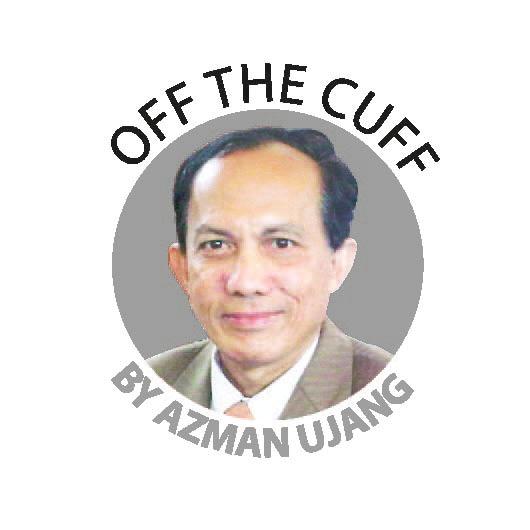THE World Bank has come out with a negative report on Malaysia’s civil service while expressing concerns over the sustainability of our public sector’s wage bill.
As far as I know, there has not been such a report prepared internally by our agencies.
The World Bank has sounded the alarm and all stakeholders should not brush it aside as yet another report on us from an international entity.
This time, the report card was particularly damning, noting that there has been a decline in the performance of the civil service.
It ranks Malaysia lowly in terms of accountability, impartiality and openness of the public service.
The Auditor-General’s Report, too, has consistently red-flagged instances of leakages and financial mismanagement making it obvious that more effective mechanisms be put in place to plug the abuses.
What is most needed is the strengthening of checks and balances, and the preventive side that could stop the bleeding of public funds wherever they are being used.
According to World Bank lead public sector specialist Rajni Bajpai, there is a big gap in the performance of our civil servants with the Organisation for Economic Co-operation and Development (OECD) countries.
It makes the comparison with these developed countries because Malaysia is hoping to move from a middle-income nation to that of high-income.
On this score, a former senior cabinet minister told me that he recently met most of the European Union ambassadors based in Kuala Lumpur and many of them also spoke critically of the standard of our civil servants.
It goes without saying that the poor command of English among civil servants is a major factor in the impression that EU envoys had about the decline in standards.
This is the price Malaysia is paying with an education system in public schools and universities that’s English-unfriendly.
The low marks are compounded by the strong perception that recruitment of the civil service is not fair and neutral where Malaysia is ranked even below the region and of course, way below the OECD.
For this, it’s opportune that in its election manifesto, Pakatan Harapan had suggested the setting up of an Equal Opportunities Commission meant to tackle discriminatory practices in both the public and private sectors.
Sustainability is the core issue here.
The World Bank noted that more important than the question of size, which at 1.6 million has been described by many as bloated, is the quality of the service and the sustainability of the wage bill.
Salaries and pensions for civil servants account for 44% of the government’s operating budget and are the government’s biggest financial headaches as they could not be delayed or rescheduled like bank loans.
It costs the government about RM12 billion annually to pay the pensioners alone.
The World Bank’s Rajni said a country that could collect more revenue would be able to finance its civil service but in Malaysia’s case, revenue collection had been “a big problem”.
“It has not moved in the way it should move and if you are not collecting revenue that you should be collecting and the wage bill is rising, the situation is not sustainable,” she said.
The Institute for Democracy and Economic Affairs (IDEAS) director of research Laurence Todd said that while the Malaysian public sector had historically performed well in the region, its progress was at risk of slowing down.
“In the case of public sector efficiency, the cumulative cost of corruption, lack of competition, in both appointments and procurements, and low levels of openness are taking their toll and holding back Malaysia’s development,” he said.
IDEAS is of the view that further reforms are necessary to improve the public sector and enhance its effectiveness. The reforms should include a voluntary early redundancy scheme and competency-based appointments.
A former ambassador, Datuk Noor Farida Mohd Ariffin, said the organisation structure must be streamlined so that there would not be any overlap in functions and roles.
“The public sector is huge compared to other countries, that is the problem. The size is too untenable and it is not affordable for the government,” she said. It is understood that the monthly wage bill costs RM8 billion.
What also ought to be seen to be done is having a more inclusive civil service especially at the leadership level.
The country is better off with more deserving non-Malays being appointed to decision-making posts as a cross-fertilisation of talents, experience and ideas can create inclusivity and diversity.
The suggestion for an Equal Opportunities Commission is worth considering, to begin with.
Comments: letters@thesundaily.com
















